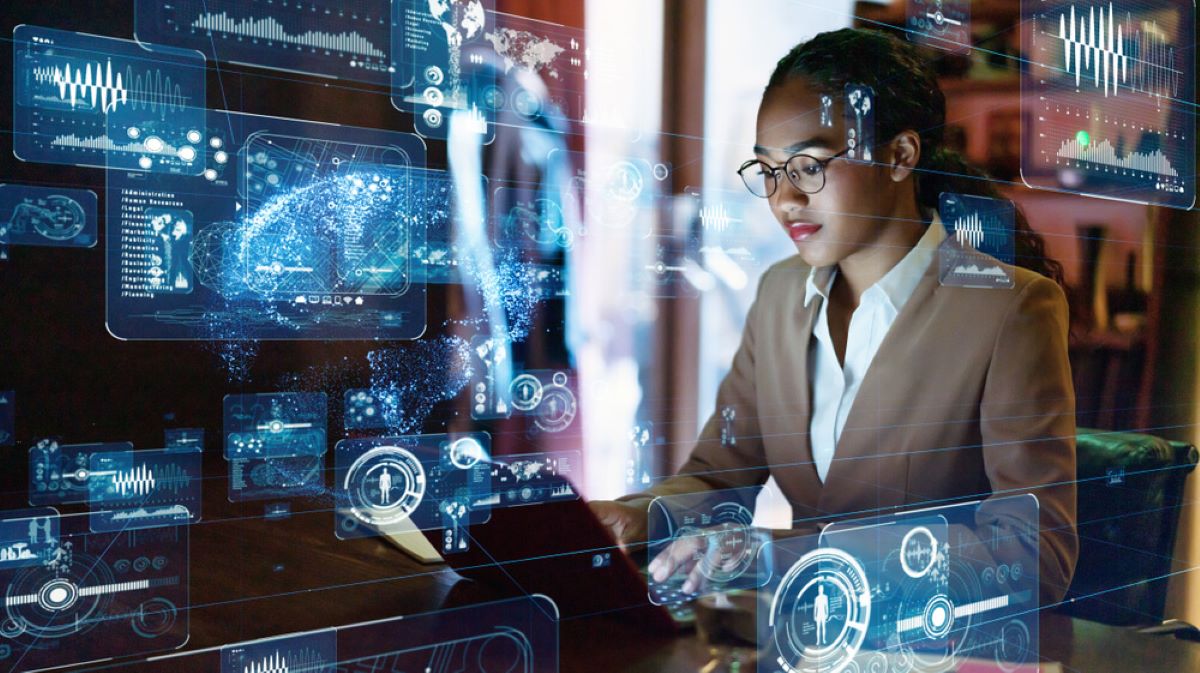By now, we’ve all been subjected to a little personalization magic trick to get us to buy or read something. How did it know what liked? Is someone watching me? Well, it and someone is the one and only AI.
Meta’s Threads, which has garnered over 150 million downloads so far, will one day join the fediverse, a group of decentralized and independently-run servers operating in an online interconnected space where data mining is allowed, and personalization becomes augmented thanks to AI. Watch out Twitter!
Consumers today expect AI personalization more than ever before. They want to be talked to and catered to via text, sound, and images that read their personality intimately.
Salesforce points out that 76% of customers say it’s easier than ever to take their business elsewhere in search of an experience that matches their expectations. PwC estimates that AI could contribute up to $15.7 trillion to the global economy by 2030.
There are currently over 26 million e-commerce sites across the entire globe, which generated nearly a trillion dollars in U.S. sales alone catering to 2 billion digital buyers in 2022, and with global retail e-commerce sales projected to attain the $8.1 trillion mark by 2026, AI is expected to play a bigger role personalizing the offering.
Need for hyper-personalization
Hyper-personalization essentially means treating each user as a unique customer segment using artificial intelligence, machine learning, and natural language processing. According to McKinsey, 71% of consumers demand personalization, and 76% of customers are frustrated when a company does not personalize their offerings.
This is driving players in banking, healthcare and retail sectors to invest heavily in hyper-personalization solutions, using AI and data science to better understand their customer’s preferences and make personalized recommendations based on that data.
Read: Sheikh Hamdan bin Mohammed announces opening of the Dubai Centre for Artificial Intelligence
With 63% of digital marketers saying they struggle with personalization, spending on AI-powered marketing solutions that personalize the entire customer journey, boosting engagement and conversion rates, is forecasted to grow 5 times by 2030.
Some of the data that help algorithms establish patterns and behaviors to build profiles and make predictions about customer preferences include browsing data, interactions, ratings, reviews, purchase history, engagements, demographic data, and feedback. Other metrics that brands can use to create more targeted ads include social posts, comments, likes, and shares.

Companies that use AI personalization
Amazon leverages Amazon Personalize, an ML-based recommendation system, to decrease abandoned carts by recommending products based on user preferences.
Facebook uses AI-powered ad targeting systems that allow companies to pursue different audiences based on their traits and using location-based targeting, interest-based, behavior-based, job title, education level, gender, and demographics.
Facebook is the leading ad-targeting platform, with over 2 billion active users.
Warner Bros. Discovery has customized movie and show recommendations for users and according to their VP of Architecture, Don Browning, the company saw a 14% increase in user engagement and a 12% increase in cross-brand engagement since implementing content personalization.
Spotify, a digital music, podcast, and video platform uses listening history, search queries, and user-generated playlists to curate playlists that cater to every user’s individual taste of music.
Sephora, a global company specializing in selling and promoting beauty products, uses AI-powered personalization to create a more engaging shopping experience for its customers. It avails machine learning algorithms to analyze customers’ facial features and then recommend makeup products that are suitable just for them.
Nike also leverages AI-powered personalization to show users of their platforms products they’re more likely to be interested in.
Dynamic pricing strategies using AI personalization
AI personalization allows companies to deploy what is known as Dynamic pricing, a strategy that involves adjusting the price of a service or product based on certain factors like market trends, production costs, competitor prices, location, demographic data, and customer purchase behaviors.
Industries using dynamic pricing include airlines, e-commerce sites, hospitality and retail sectors. Uber uses dynamic pricing strategies on different days of the week.
Personalized chatbots
Today\s newer chatbots are not only AI-powered but also have the capacity to value customer queries and create personalized responses.
Using Natural Language Processing to understand and interpret queries and respond appropriately, chatbots can today recall past sales conversions to provide a more personal experience.
Armed with data like purchase history, preferences, and past interactions, chatbots are able to create an individual user profile that matches the user’s unique characteristics.
Chatbots can also learn in real time as they interact with users and adjust their preferences accordingly with the ability to analyze huge amounts of data and identify trends and patterns in user behavior.
For more technology news, click here.








